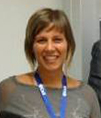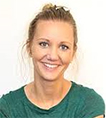(https://doi.org/10.55612/s-5002-057)

David Bowers
is a Professor of Computing in the School of Computing and Communications at the Open University (UK); a Fellow of BCS (The Chartered Institute for IT), Chartered Engineer and Chartered IT Professional; and, in recognition of his use of SFIA to benchmark students’ work-based achievements, an Accredited SFIA Consultant. He served for thirteen years as Programme Director for the School’s undergraduate programmes, and then as Deputy Head of School. From 2018-2021, he led the Accreditation Workstream for the UK’s Institute of Coding.

Julio Cabero-Almenara
professor at the Department of Didactics and Educational Organization of the Faculty of Education Sciences of the University of Seville. He is the director of the Didactic Research Group (GID-HUM 390), director of the Secretariat for Audiovisual Resources and New Technologies, editor in chief of Pixel-Bit Media and Education Magazine and founder of Edutec. He has participated in numerous publications and courses related to Educational Technology.

Stefano Cacciamani
is Associate Professor of developmental and educational psychology at the University of Valle d’Aosta (Italy), where he is also Rectoral Delegate for quality assurance, e-learning and digital technology for teaching. He is Vice President of the Collaborative Knowledge Building Group and Co-Director of Qwerty, an Interdisciplinary Journal of Technology, Culture, and Education. He is also Secretary of the Italian Association of Psychology. His research interests concern the design of knowledge building environment supported by digital technology, technology acceptance in education, cooperative learning at school, and sense of community in online courses and school contexts.

Alejandra Celis Vargas
is a Marie Sk?odowska-Curie PhD fellow at the Department of Communication and Psychology of Aalborg University, Copenhagen. Framed by the Open Data Ecosystems (ODECO) project, her current work addresses learning designs for Open Data competences in elementary schools. Alejandra has a background in industrial design, innovation, and strategic design, which helps her to address gaps between socio-technological innovations and people’s needs. Her main interests are learning design, user research, and research for sustainable futures. She is specially interested in human-centred approaches, gamification, and co-creation

Nobuko Fujita
is a Learning Specialist in the Office of Open Learning and an Adjunct Professor in the Faculty of Education at the University of Windsor. Her research focuses on evidence-informed learning design, knowledge creation, teaching and learning with digital technology in higher education, and open educational practices. She collaborates with faculty, staff, student partners, and her team to develop accessible, inclusive, and engaging digitally enabled courses, programs, and open educational resources. She also provides curriculum development support to various departments and teaches undergraduate and graduate courses in language and media literacy, ICT in teaching and learning, and research methods.

Carolina García
PhD. in Education and Society from the University of Barcelona (UB). Since 2020 she has been working as a research assistant with Edul@b research group (UOC) on projects about collaborative learning in online environments, micro-credentials and employability skills in higher education, and competence-based assessment in K-12. Also, she has experience in initial teacher training and undergraduate research education.

Carlo Giovannella
Graduated in Physics, he worked long time in solid state physics as an expert of complex systems. Nowadays can be considered a Designer for the experience: expert in the technology-enhanced learning, interaction design, computer-mediated communication, design and management of processes, process and product innovation, ecosystems monitoring and benchmarking. From 2015 till 2023 has been the President of ASLERD (Association for Smart Learning Ecosystems and Regional Development); at present is member of the Executive Committee of the association as Past-President. It has been the Scientific Director of the Creative Industries Area at the Consorzio Roma Ricerche from 2013 till 2016. He is member of the Dept. of History, Cultural Heritage, Education & Society of the University of Rome Tor Vergata, where he has chaired for more than 25 years the ISIM_garage (Interfaces and Multimodal Interactive Systems), a research lab devoted to design and development of TEL-environments, tools and methods for education, interaction design, and more. He is the Editor in Chief of the journal Interaction Design and Architecture (IxD&A) since 2005. It has been involved for shorter periods in the editorial board of JeLKS and IJDLDC and it is involved in the scientific board of ET&S Journal.

Lourdes Guàrdia
is Deputy Dean of Teaching and associate professor of educational technology, Department of Psychology and Education at Universitat Oberta de Catalunya. She teaches courses on technology-enhanced learning in the Master in Education and ICT (e-learning), and she is a member of Edul@b research group. Her areas of research include e-assessment, e-portfolio, competency-based learning, learning design methods and tools, teaching professional development, and emerging digital pedagogies. She is also Chair of the Curriculum & Course Design field of expertise at EMPOWER initiative led by the European Association of Distance Teaching Universities. She has been involved in more than 15 funded European projects and 10 research national projects since 1996.

Francisco Guillén-Gámez
is Assistant Professor Doctor of the Department of Didactics and School Organization, Faculty of Educational Sciences at the University of Malaga and member of the Educational Innovation and Technology Research Group -INNOEDUCA- at the University of Malaga (SEJ-533). His research interests are in educational technology, teaching digital literacy and research designs with quantitative approaches. He is the author of more than 20 articles ranked in SJR Q1 impact journals, with at least six of them also ranked as JCR Q1. He is deputy director of the scientific journal INNOEDUCA.

Agneta Gulz
is a full Professor at Lund University Cognitive Science and director of the Educational Technology Group. The group contributes to the development of theories and technologies that inform basic research on human learning while also improving instruction and education in practical settings. The research is characterized by an orientation towards schools’ and preschools’ practices and daily activities together with the use of iterative processes of evaluation and re-design. Central themes include students’ engagement with critical, constructive feedback, students’ motivation and perseverance, and students’ self-efficacy in particular domains. One of the group’s line of research during the past years is how to support 11-13 year olds in developing data literacy

Juan Jesús Gutiérrez-Castillo
affiliated to the Department of Didactics and Educational Organization of the Faculty of Educational Sciences of the University of Seville. He is a member of the Didactic Research Group (GID-HUM 390) and executive editor of Pixel-Bit magazine. Media and Education Magazine. He has participated in numerous research and courses related to the topic of New Technologies Applied to Education.

Magnus Haake
is Associate Professor at Lund University Cognitive Science. Haake, whose expertise lies in the intersection of design sciences, cognitive sciences, graphic design and engineering, is deputy director of the research group Educational Technology Group. The research and development carried out by the group has two purposes: (1) exploiting educational software as research instruments to explore learning and instruction, and (2) developing educational software with a real-world value. The two purposes are intertwined. The educational software is developed on the basis of empirical knowledge about human cognition. Evaluations and real-world use of the pedagogical software produces new insights and knowledge – which is then also fed back into the software as it is redesigned. One of the group’s lines of research during the past years has been how to support preschoolers as well as preschool teachers in the domain of early math.

Külli Kori
has MA in Biology teaching and PhD in Educational sciences from the University of Tartu, Estonia. She is currently a lecturer of research methods in IT at Tallinn University, Estonia. Her research interests include student retention, educational technology, inquiry-based learning, citizen science, active citizenship competences.

Birger Larsen
is Full Professor in Information Analysis and Information Retrieval at the Department of Communication, Aalborg University Copenhagen, where he is co-lead of the Purposeful Technology Lab research group. Birger has a passion for research that involves the activities, processes and experiences arising in the meeting between users, information, and information systems in a given context – with the goal of optimising these to empower users in their task and problem solving. His main research interests include Information Retrieval (IR), structured documents in IR, XML IR and user interaction, domain specific search, understanding user intents and exploiting context in IR, as well as Informetrics/Bibliometrics, citation analysis and quantitative research evaluation – and recently Big Data and Humanities, where he investigates the new possibilities and challenges arising from the application of large scale data collection and analysis techniques to Humanities research. In addition, he is an active consultant carrying out research-based scientometric evaluations for universities and governmental agencies.

Fedela Loperfido
is a PhD in Educational Psychology, a group and individual psychoterapist, and the head of the psychoeducational area for Faber City – Cooperative Community of Alberobello. Her research activities concern the function of technologies in identity development processes and in emotional dynamics during learning experiences. The interpretative approach is the dialogic one in integration with both cultural-historical and dynamic ones.

Rikke Magnussen
is a professor in educational citizen science and sustainability education at Department of Communication and Psychology at Aalborg University in Copenhagen. Her main research interest is in: Green Transition of Education, Citizen Science and Open Data. Her main expertise is in how digital learning design can open for new types of collaborative citizen science practice and innovation processes to change science education in school and science learning in in-formal settings outside school. She is particularly interested in citizen science and community driven research and how different types of communities can collaborate in solving sustainability challenges.

Marcelo Maina
is an associate professor of educational technology, Department of Psychology and Education, Universitat Oberta de Catalunya, Barcelona. He is the director of the Master in Education and ICT (e-learning) and teaches courses on technology-enhanced learning in the mentioned Master and on quality in education in the Master of Quality Assessment and Management in Higher Education. He is also a member of the Edul@b research group. His research interests focus on open education, competency-based education, blended learning, 21st-century skills, e-portfolio, learning design methods and tools, and emerging digital pedagogies. He regularly participates in European projects regarding education innovation and technology.

Federica Mancini
is a research assistant in the Edul@b Research group, Universitat Oberta de Catalunya. She received her PhD in Information and Knowledge Society at the Internet Interdisciplinary Institute (IN3) in 2013. She has collaborated with the University of Florence and other academic institutions prior to working for the Universitat Oberta de Catalunya. Since 2002, she has participated as a researcher, instructional designer and coordinator of dissemination activities in several research and development projects funded by the European Commission. Her research interests include digital education, the application of innovative pedagogical methodologies and technologies in formal and informal learning environments, and innovative teaching methodologies

Ingrid Mulder
is an expert in transformative and social design. As an Associate Professor of Design Techniques at Delft University of Technology, Faculty of Industrial Design Engineering and director of the Delft Design Lab Participatory City Making, she studies the city as a space for transition while experimenting with participatory techniques and systemic design approaches for scaling and infrastructuring social change. She has a background in policy and organization sciences (MA, University of Tilburg) and educational science and technology (Ph.D., University of Twente), and started her research career anticipating future technologies impacting society within the national Top Technology Institute on Telematics. As part of her previous readership in digital social innovation, she founded Creating010, a trans-disciplinary design-inclusive research centre addressing societal challenges in relation to the digital transformation.

Antonio de Padua Palacios Rodriguez
Graduated in Primary Education (English language) at the University of Seville. He has also completed the University Master's Degree in Management, Evaluation and Quality of Training Institutions at the same university institution. He is member of the Didactic Research Group (GID-HUM 390): Technological and Qualitative Analysis. He currently works in the Department of Didactics and Educational Organization of the Faculty of Education Sciences, University of Seville. His teaching and research experience is related to Educational Technology and teacher training.

Kai Pata
has MA in Biology and Chemistry teaching, MSc in Science education from The University of Tartu, Estonia and PhD in Education from The Turku University, Finland. She is the professor of adult and informal education in Tallinn University, Estonia. Her research is on adult and informal education, citizen science and educational technology in different learning situations.

Marian Petre
is an Emeritus Professor of Computing at the Open University (UK). An ACM Distinguished Scientist, she received a Royal Society Wolfson Research Merit Award in recognition of her research on the nature of expertise in software design and on reasoning and representation in software development. Her book collaborations include ‘Computer Science Project Work’ (Springer), ‘Computer Science Education Research’ (Taylor & Francis), and ‘Software Design Decoded’ (MIT Press).

Giuseppe Ritella
is a senior researcher in Psychology of development and education at the Department of Psychology of the University of Campania “Luigi Vanvitelli”. He has been examining the space-time relations and collaborative processes in technology-mediated learning adopting an approach based on dialogic and socio-cultural theories. His current research interests concern the socio-material, emotional and cultural aspects of technology-mediated learning and of innovative educational practices.

Betty Tärning
is Ph.D. in Cognitive Science and reseracher at Lund University Cognitive Science. Tärning is a member of the Educational Technology group. Tärning defended her thesis about teachable agents and feedback in 2018 and has since then continued to conduct research on teachable agents as well as learning instruction by means of Virtual Reality and, more recently, in the domain of data- and information literacy in 11-13 year olds.

Eva-Maria Ternblad
is a doctoral student in Cognitive Science at Lund University. Ternblad is a member of the Educational Technology group. Ternblad’s thesis mainly comprises different aspects of virtual and physical interaction and feedback engagement, although she also has been engaged in studies on virtual reality, self-regulation, ‘gaming-the-system’-aspects of educational software, and information- and data literacy.
